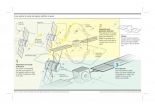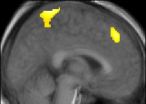(Press-News.org) Jerusalem, Oct. 13, 2010 – Unlike humans, honey bees, when thrown into highly time-altered new societal roles, are able to alter their biological rhythms with alacrity, enabling them to make a successful "quick switch" in their daily routines, according to research carried out at the Hebrew University of Jerusalem.
With people, on the other hand, disturbances to their biological clocks by drastic changes in their daily schedules are known to cause problems -- for example for shift workers and for new parents of crying, fitful babies. Disturbance of the biological clock – the circadian rhythm – can also contribute to mood disorders. On a less severe scale, international air travelers all know of the "jet lag" disturbance to their biological clocks caused by traveling across several time zones.
Bees, however, have now been shown to be highly resilient to such change. When removed from their usual roles in the hive, the bees were seen to quickly and drastically change their biological rhythms, according to a study by Prof. Guy Bloch of the Department of Ecology, Evolution and Behavior of the Alexander Silberman Institute of Life Sciences at the Hebrew University. His research is published in the current edition of The Journal of Neuroscience.
The changes, he found, were evident in both the bees' behavior and in the "clock genes" that drive their internal biological clocks. These findings indicate that social environment had a significant effect on both behaviour and physiology.
Circadian rhythm, the body's "internal clock," regulates daily functions. A few "clock genes" control many actions, including the time of sleeping, eating and drinking, temperature regulation and hormone fluctuations. However, exactly how that clock is affected by -- and affects -- social interactions with other animals is unknown.
Bloch and his colleagues Dr. Yair Shemesh, Ada Eban-Rothschild, and Mira Cohen chose to study bees in part because of their complex social environment. One role in bee society is the "nurse" -- bees that are busy round the clock caring for larvae. This activity pattern is different from other bees and animals, whose levels rise and fall throughout the day.
Bloch and his team thought that changing the nurse bees' social environment might alter their activity levels, so they separated them from their larvae. The researchers found that the bees' cellular rhythms and behavior completely changed, matching a more typical circadian cycle. The opposite also was true, when other bees were transferred into a nursing function.
"Our findings show that circadian rhythms of honey bees are altered by signals from the brood that are transferred by close or direct contact," Bloch said. "This flexibility in the bees' clock is striking, given that humans and most other animals studied cannot sustain long periods of around-the-clock activity without deterioration in performance and an increase in disease."
Because bees and mammals' circadian clocks use the same clock genes and are similarly organized, the question arises as to whether the clocks of other animals also strongly depend on their social environments. The next step is to find just how social interactions influence gene expressions. Further research into this question may have implications for humans who suffer from disturbances in their behavioral, sleeping and waking cycles.
INFORMATION:
The research was supported by the Israeli Science Foundation, the Israel-U.S. Binational Science Foundation, and the German Israel Foundation.
Unlike us, honeybees naturally make 'quick switch' in their biological clocks, says Hebrew University researcher
2010-10-14
ELSE PRESS RELEASES FROM THIS DATE:
Eyetracker warns against momentary driver drowsiness
2010-10-14
Those who do a lot of driving know how tiring long car trips and night driving can be. And a simple fraction of a second can decide the difference between life and death. According to the German Road Safety Council e.V. (DVR), one in four highway traffic fatalities is the result of momentary driver drowsiness. Researchers at the Fraunhofer Institute for Digital Media Technology IDMT in Ilmenau, Germany, have developed an assistant system that tracks a driver's eye movements and issues a warning before the driver has an opportunity to nod off to sleep.
The special feature ...
A new system for locating and capturing satellites in space
2010-10-14
Within the framework of this research project, "Acoplamiento y Agarre de Satélites mediante Sistemas Robóticos basado en Visión (Docking and Capture of Satellites through computer vision) (ASIROV)", the scientists have developed algorithms and strategies to dock and capture a disabled satellite through the use of a space vehicle, called a "chaser", which autonomously carries out this function. "In this way", explained the head of this research study, Mohamed Abderrahim, who is from the UC3M Department of Automated Systems Engineering, "we attempt to carry out all ...
Scientists prepare for confined field trials of life-saving drought-tolerant transgenic maize
2010-10-14
DES MOINES, IOWA (14 October 2010)—Crop specialists in Kenya and Uganda have laid the groundwork for confined field trials to commence later this year for new varieties of maize genetically modified to survive recurrent droughts that threaten over 300 million Africans for whom maize is life, according to a speech given today by the head of the African Agricultural Technology Foundation (AATF) at the World Food Prize Symposium.
Scientists working with AATF believe it's important to explore the potential of biotechnology to maintain and increase food production in Africa, ...
I win, you lose: Brain imaging reveals how we learn from our competitors
2010-10-14
Learning from competitors is a critically important form of learning for animals and humans. A new study has used brain imaging to reveal how people and animals learn from failure and success.
The team from Bristol University led by Dr Paul Howard-Jones, Senior Lecturer in Education in the Graduate School of Education and Dr Rafal Bogacz, Senior Lecturer in the Department of Computer Science, scanned the brains of players as they battled against an artificial opponent in a computer game.
In the game, each player took turns with the computer to select one of four ...
Life expectancy higher in Israel than in US, according to Ben-Gurion U. researcher
2010-10-14
BEER-SHEVA, ISRAEL, October 13, 2010 — A new study conducted by a researcher at Ben-Gurion University of the Negev (BGU) for Jerusalem's Taub Center for Social Policy Studies in Israel reports that Israeli's have a higher life expectancy on average than Americans and residents of other OECD (Organization for Economic Cooperation and Development) countries.
According to the most recent data, from 2005, the average American life expectancy is now 78 years; for Israeli Jews, approximately 81 years and Israeli Arabs, 79 years. Japan has the highest life expectancy of OECD ...
Train a computer to classify pictures and videos based on the elements that they contain
2010-10-14
University of Granada researchers have developed a new computer technique that allows to "train" computers to interpret the visual contents of a video or picture. This advance will allow to classify automatically pictures basing on whether individuals or specific objects are present in such images. Videos can also be classified according to specific poses.
At present, computer search and classification of images is made basing on the name of the file, folder or on features as date or size, but the visual information contained was never used for classification purposes. ...
Study demonstrates pine bark naturally improves tinnitus
2010-10-14
HOBOKEN, N.J. (Sept. 13, 2010) – More than 50 million Americans will experience some degree of tinnitus in their lifetime, according to the American Tinnitus Association. Tinnitus is a hearing condition that causes the constant misperception of sound, including hissing, ringing and rushing noises. A study recently published in Panminerva Medica reveals that Pycnogenol® (pic-noj-en-all), an antioxidant plant extract derived from the bark of the French maritime pine tree, is effective in relieving tinnitus symptoms by improving blood flow in the inner ear.
"Impaired blood ...
Biopharma leaders to reveal successful strategies for China, India at the PharmAsia Summit
2010-10-14
San Francisco, Calif., 13 October, 2010 - Elsevier Business Intelligence, publisher of PharmAsia News, IN VIVO and "The Pink Sheet," today announced the agenda for Windhover's 2nd PharmAsia Summit (Oct. 25-26). This year's Summit will bring top biopharma leaders from Asia and the U.S. to San Francisco to share what works and what doesn't in China, India, Japan and the Pacific Rim.
At the PharmAsia Summit, you'll hear Asia strategies and case studies from industry leading experts on dealmaking, commercial strategy, outsourcing, regulatory risks, IP protection, and pricing ...
Early role of mitochondria in AD may help explain limitations to current beta amyloid hypothesis
2010-10-14
(NEW YORK, NY, October 13, 2010) – Before Alzheimer's patients experience memory loss, the brain's neurons have already suffered harm for years.
A new study in mouse models by researchers at Columbia University Medical Center has found that the brain's mitochondria -- the powerhouses of the cell -- are one of the earliest casualties of the disease. The study, which appeared in the online Early Edition of PNAS, also found that impaired mitochondria then injure the neurons' synapses, which are necessary for normal brain function.
"The damage to synapses is one of the ...
National study shows 1 in 5 children meet criteria for a mental disorder across their lifetime
2010-10-14
Washington, DC, 13 October 2010 - Mental disorders in children are often difficult to identify due to the myriad of changes that occur during the normal course of maturation. For the first time, researchers at the National Institute of Mental Health have reported on the prevalence data on a broad range of mental disorders in a nationally representative sample of U.S. adolescents, which show that approximately one in five children in the U.S. meet the criteria for a mental disorder severe enough to disrupt their daily lives.
The prevalence of the mental health disorders ...


